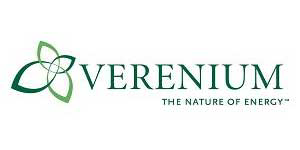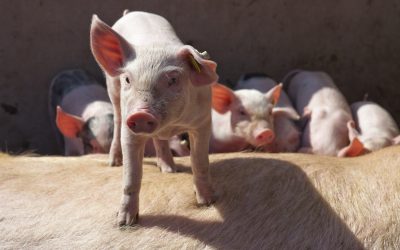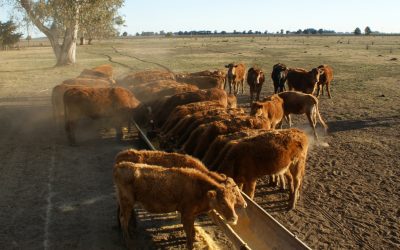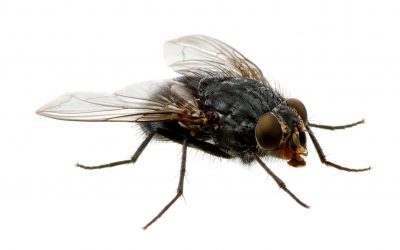Company update: Verenium Q2 2012

Verenium Corporation, an industrial biotechnology company focused on the development and commercialization of high-performance enzymes, reported operating highlights and financial results for the second quarter and six months ended June 30, 2012.
“The first half of the year proved to be an important turning point for Verenium,” said James Levine, President & Chief Executive Officer at Verenium.
“With the recent move into our new facility completed and our debt repaid, we are focused on growing our business through the sales of our current marketed products, developing our product pipeline, and establishing future collaborations and partnerships.”
Company highlights
Since the beginning of 2012, the Company has made progress on both operational and financial fronts. Recent accomplishments include:
- Completed a strategic transaction with DSM Food Specialties, including the sale of the Company’s oilseed processing business, for total consideration of $37 million;
- Repurchased $34.9 million in convertible notes outstanding, retiring all of the Company’s remaining debt;
- Announced that the Company’s next-generation enzyme breaker was authorized for use in hydraulic fracturing by the Environmental Protection Agency (EPA);
- Completed moving into the Company’s new office and state-of-the-art laboratory and pilot plant facility in San Diego, California; and
- Ended the second quarter with unrestricted cash of $14.4 million and $5.7 million in restricted cash.
Total revenues for the six months ended June 30, 2012 increased 15% to $32.9 million from $28.5 million for the same period in the prior year.
Product and contract manufacturing revenues represented approximately 80% of total revenues for the six months ended June 30, 2012 compared to 96% for the same period in the prior year.
Product revenue for the six months ended June 30, 2012 decreased 13% to $24.0 million from $27.5 million for the same period in the prior year, primarily due to a decrease in grain processing revenue compared to 2011 due primarily to adverse business conditions in the corn ethanol industry and the sale of the Company’s Purifine and Veretase products to DSM in March of 2012.
The decrease was partially offset by an increase in Phyzyme phytase revenue due to increased manufacturing volumes, as well as an increase in profit share from Dupont.
Product and contract manufacturing revenue from non-Phyzyme products as a percentage of total product and contract manufacturing revenues decreased to 37% for the six months ended June 30, 2012 compared to 51% for the same period in the prior year.
Contract manufacturing revenue increased as a result of the supply agreement entered into in conjunction with the DSM sale, under which to the Company produces and sells Purifine and Veretase to DSM at lower sales prices than when the Company sold directly to end customers.
Total collaborative revenue for the six months ended June 30, 2012 increased to $6.5 million from $1.0 million for the same period in the prior year, primarily due to recognition of the $2.9 million license fee revenue from Novus International, Inc., and $1.5 million in license fees associated with the DSM transaction.
The Company also generated $0.5 million in revenue from a one-time up-front payment associated with the development of a commercial product under an agreement with Tate & Lyle.
Product and contract manufacturing profit and margin
Product and contract manufacturing gross profit for the six months ended June 30, 2012 decreased 8% to $9.2 million from $10.0 million for the same period in the prior year.
Gross margin decreased to 35% of total product and contract manufacturing revenue for the six months ended June 30, 2012, compared to 36% for the six months ended June 30, 2011.
Gross margin decreased primarily due to the Company’s supply agreement with DSM, under which the Company sells Purifine and Veretase enzymes at a lower margin.
“Despite adverse conditions in the corn ethanol industry, we are pleased overall with our financial results for the first half of 2012,” said Jeffrey Black, Senior Vice President and Chief Financial Officer. “As we aggressively push to increase customer adoption rates, grow our top line and improve product gross margins, we continue to maintain our focus on prudent cost management and cash conservation.”
Phyzyme money maker
Phyzyme phytase is the largest product in Verenium portfolio. “Sales of finished product by our partner Danisco Animal Nutrition, a unit of DuPont strengthened in the second quarter,” said Janet Roemer, Chief Operating Officer at Verenium in a conference call.
“Poultry and pork which are the major markets for Phyzyme Phytase are favourably priced relative to beef and we expect this we will continue to be the case as the year progresses, the demand will likely be tampered by reduced animal production by some producers as margins are squeezed by continued high feed cost.
“In addition, we manufactured more Phyzyme phytase than in the first quarter which further increases our reported revenue for this product line.
“Also in the quarter an important ruling in Europe revoked a Novozymes patent, which related to manufacturing animal feed containing coded demonstrable enzyme granules.
“This removed uncertainty in the marketplace and clarified Danisco’s ability to sell the thermal stable version of Phyzyme phytase in Europe. For a while it had been halted in Denmark under a preliminary injunction. This represents an important victory for customer choice and for Phyzyme phytase,” Roemer said.
Pilot plant
An important tool in manufacturing improvement is the new pilot plant, roemer said. “We have built a state-of-the-art pilot plant at our new facility in San Diego which we expect to be operational in the fourth quarter with multiple 40 litre fermenters and a 500 litre fermenters and appropriately match down recovery equipment.
“We are excited about the capability we will have to systematically evaluate production process improvement that can reap valuable reward when transferred to full scale.











